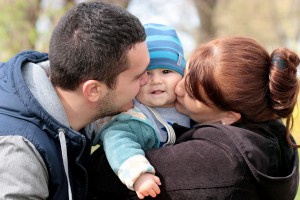 Mental health in early childhood is not given the awareness it merits as a contributing factor to human development. The National Scientific Council on the Developing Child at Harvard University has written a paper and created a video that stresses the significance of early childhood mental health. The report Establishing a Level Foundation for Life: Mental Health Begins in Early Childhood: Working Paper No. 6. emphasizes the importance of focusing on this area. Below are some noteworthy key points from the paper.
Mental health in early childhood is not given the awareness it merits as a contributing factor to human development. The National Scientific Council on the Developing Child at Harvard University has written a paper and created a video that stresses the significance of early childhood mental health. The report Establishing a Level Foundation for Life: Mental Health Begins in Early Childhood: Working Paper No. 6. emphasizes the importance of focusing on this area. Below are some noteworthy key points from the paper.
1. Emotional well-being early in life is central to development
Mental health plays a role in growth, achievement and learning, coping, behaving and building meaningful relationships in all facets of life, starting in early childhood. Mental health is as important as developmental milestones which receive far greater attention. Without emotional well-being all other aspects of growth may have shortcomings to reach full potential. The authors eloquently state that “sound mental health provides an essential foundation of stability.” This emphasizes that mental health early on in childhood positively or negatively is impacted by experiences and relationships which influences functioning and development.
2. Nature, Nurture, Stress and the Brain
The dynamics between genes and experiences contribute to development and mental health. Genetics do not determine the entire outcome for a child. Genes are like a map that can give awareness to susceptibilities. Positive relationships and early experiences can serve as a protective factor against susceptibilities. Negative early experiences and exposure to stressful situations (i.e., abuse, neglect, and violence) increases the risk for mental health difficulties. More specifically, interactions between genes and persistent negative experiences can increase a child’s vulnerabilities, when they exist, and lead to later problems. Additionally, stress in early childhood can impact a growing brain which can lead to mental health problems later in life. Long term stress creates physiological changes, even in young children, and if they do not have supportive relationships that serve as protection, brain development is at a disadvantage. Early experiences and stress have an impact on brain development, relationship and skill development as well as physical health.
3. Mental Health problems and Young Children
Mental health challenges can occur early on in a child’s life. There are differences in behaviors and symptom presentation contingent on age however young children can have difficulties too. The authors share that there have been advances in identification for early age onset of mental health disorders yet challenges still exist with young children. Young children may present with a multiple of problems similar to older children (example: anxiety and bedwetting or irritability and noncompliance) or single temporary behaviors.
4. Prevention and Early Identification
Prevention strategies and identifying mental health problems and those at risk for developing mental health problems are crucial. Strategies implemented correctly can positively impact emotional well-being and outcomes over the course of one’s life. Attention to early mental health problems is vital because early interventions with children and families can have a large impact on future development and problems. Challenges do with exist with early identification given developmental differences seen during stages of growth. However, when interventions, strategies and skills are not implemented as problems begin in early childhood they can lead to more serious problems late in life.
5. Family Role and Factors
Relationships and surroundings help shape a child. Positive relationships with others especially the adults and caregivers in the early years of life set the tone for psychological well-being. Strengthening a relationship between a parent and child can have a lasting impact. Additionally, the mental health of a parent or caregiver cannot be ignored. Caring for a child is a stressful and rewarding experience. An adult struggling with stress, depression or any other mental health condition can negatively impact their quality and style of parenting. Risk for mental health problems in early childhood will rise when relationships with parents/caregivers are lacking attention, affection and reliability.
6. Therapeutic Help
Assisting a young child with mental health needs is best done through various methods and in different settings. Often for young children a strongly supported approach is to focus on assisting the parents / caregivers. Building the parents ability to nurture and protect if stress occurs will influence the quality of their relationship. Providing support to minimize and cope with stress, increase positive parenting strategies and support their healthy relationships will likely prevent negative outcomes for children.
Manhattan Psychology Group provides coordinated services that can help with assisting families regarding early childhood mental health. We provide:
- Individual therapy for adults
- Parent Child Interactive Therapy (PCIT)
- In home behavioral therapy to help the child/parent relationship and routine
- Individual behavioral therapy to assist a child with skill development
- School consultation and collaboration
Source: National Scientific Council on the Developing Child. (2008/2012). Establishing a Level Foundation for Life: Mental Health Begins in Early Childhood: Working Paper No. 6. Updated Edition. Retrieved from www.developingchild.harvard.edu





